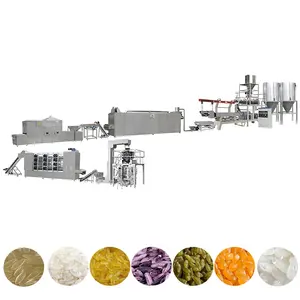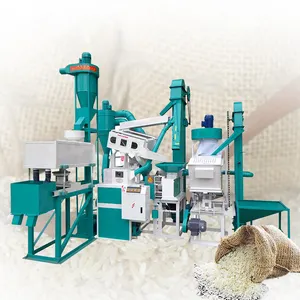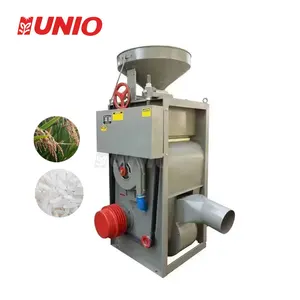Introduction to Rice Mill Plants
A rice mill plant is an industrial setup that streamlines the processing of paddy to edible rice, ensuring the transition is as efficient and effective as possible. This comprehensive unit involves various stages of processing, including cleaning, husking, whitening, and grading. The sophistication of these plants can range from simple milling operations to fully automatic rice mill plants, catering to different business scales and needs.
Types and Applications of Rice Mill Plants
The diversity in rice milling machinery is vast, with options like mini rice mill plants and large-scale automatic rice mill plants. Smaller setups, such as mini rice plants, are suitable for local markets and smaller farms, whereas larger installations serve commercial milling operations. Specialized plants, such as paddy parboiling plants, add value by enhancing the nutritional profile and shelf-life of rice, making it a versatile choice for various market demands.
Features and Materials of Rice Milling Machinery
Modern rice milling machinery is designed with advanced technology to ensure minimal waste and maximum efficiency. The construction of these machines typically involves durable materials that withstand the rigors of rice processing. Features may include automation systems that control the flow and processing of rice, ensuring consistent quality and reducing the need for manual labor.
Advantages of Investing in a Rice Mill Plant
Investing in a rice mill processing plant can lead to increased productivity and profitability. The automation within these plants leads to a reduction in labor costs and human error, while the technological advancements ensure higher yields of better-quality rice. Additionally, the ability to process rice on-site reduces transportation costs and allows for quicker response to market demands.
Operational Considerations for Rice Mill Plants
For a smooth operation of a rice mill plant, maintenance is key. Ensuring that all parts, such as the transmission belt, are in optimal condition is essential. Regular lubrication of moving parts is necessary to prevent breakdowns. It's also crucial to prepare the paddy properly, removing impurities and adjusting moisture content to the recommended levels to prevent damage to the machinery and ensure efficient processing.
Cost and Capacity Factors
The cost of rice mill plant varies widely based on capacity and features. For instance, a 1 ton rice mill plant might be significantly more affordable than a 4 ton rice mill plant. The scale of the operation and the degree of automation play a significant role in determining the initial investment and operational costs. Prospective buyers should consider the long-term benefits of higher capacities and advanced features against the initial outlay.















































 浙公网安备 33010002000092号
浙公网安备 33010002000092号 浙B2-20120091-4
浙B2-20120091-4